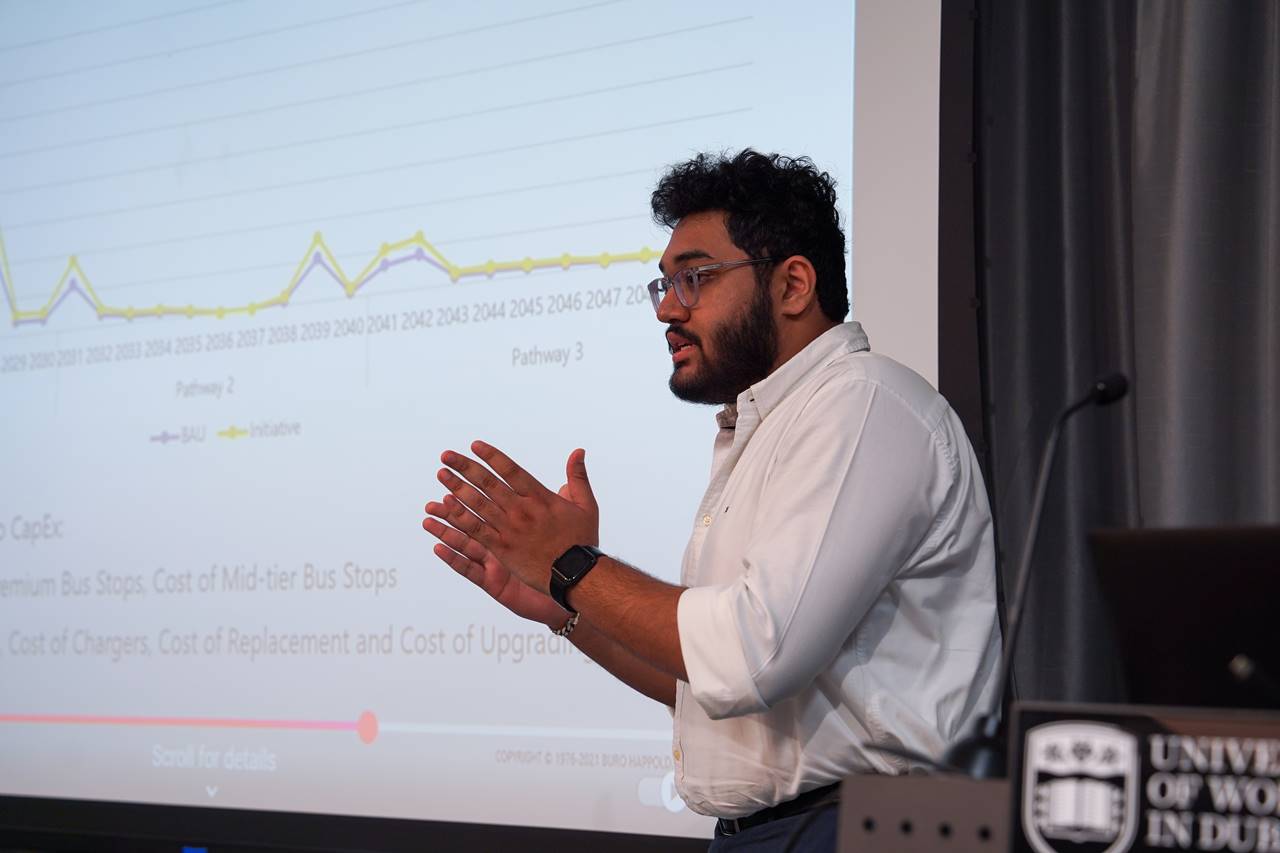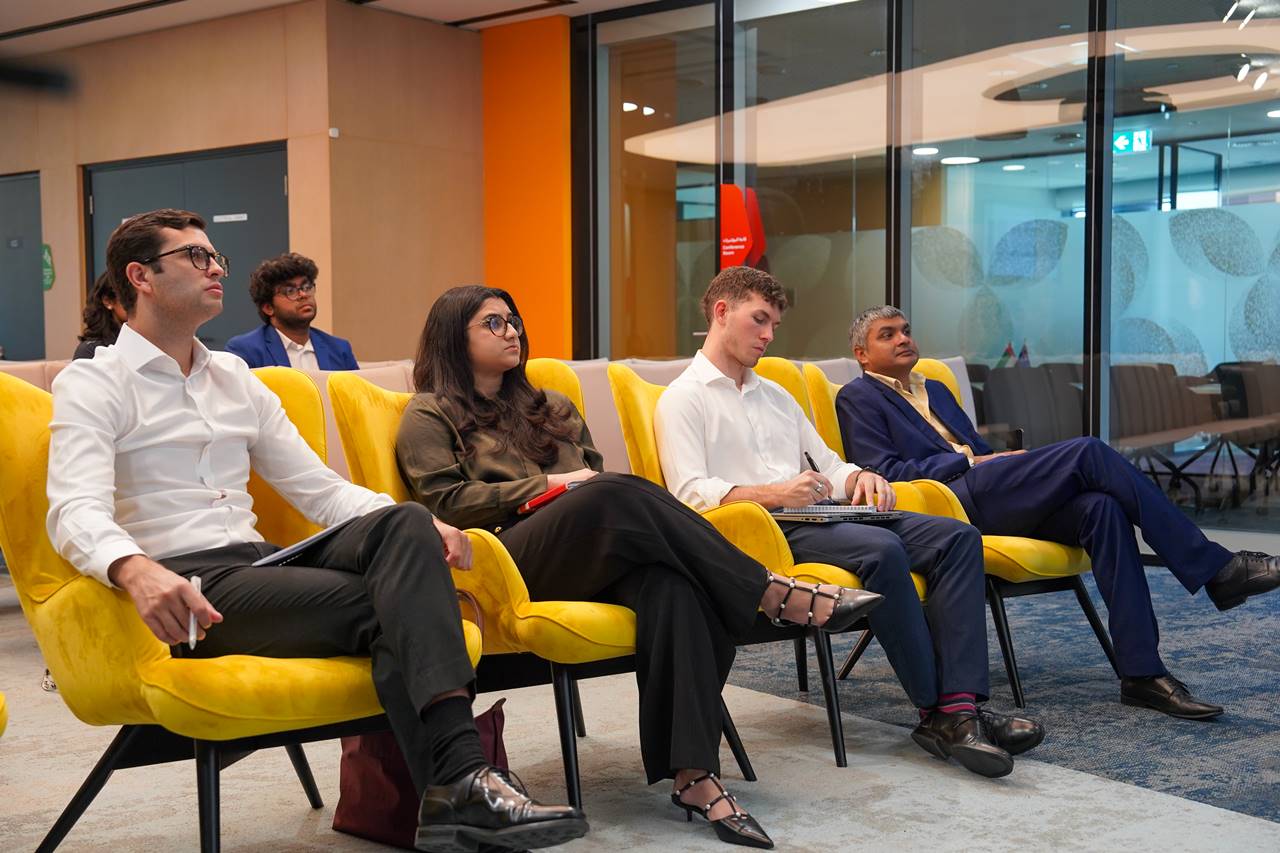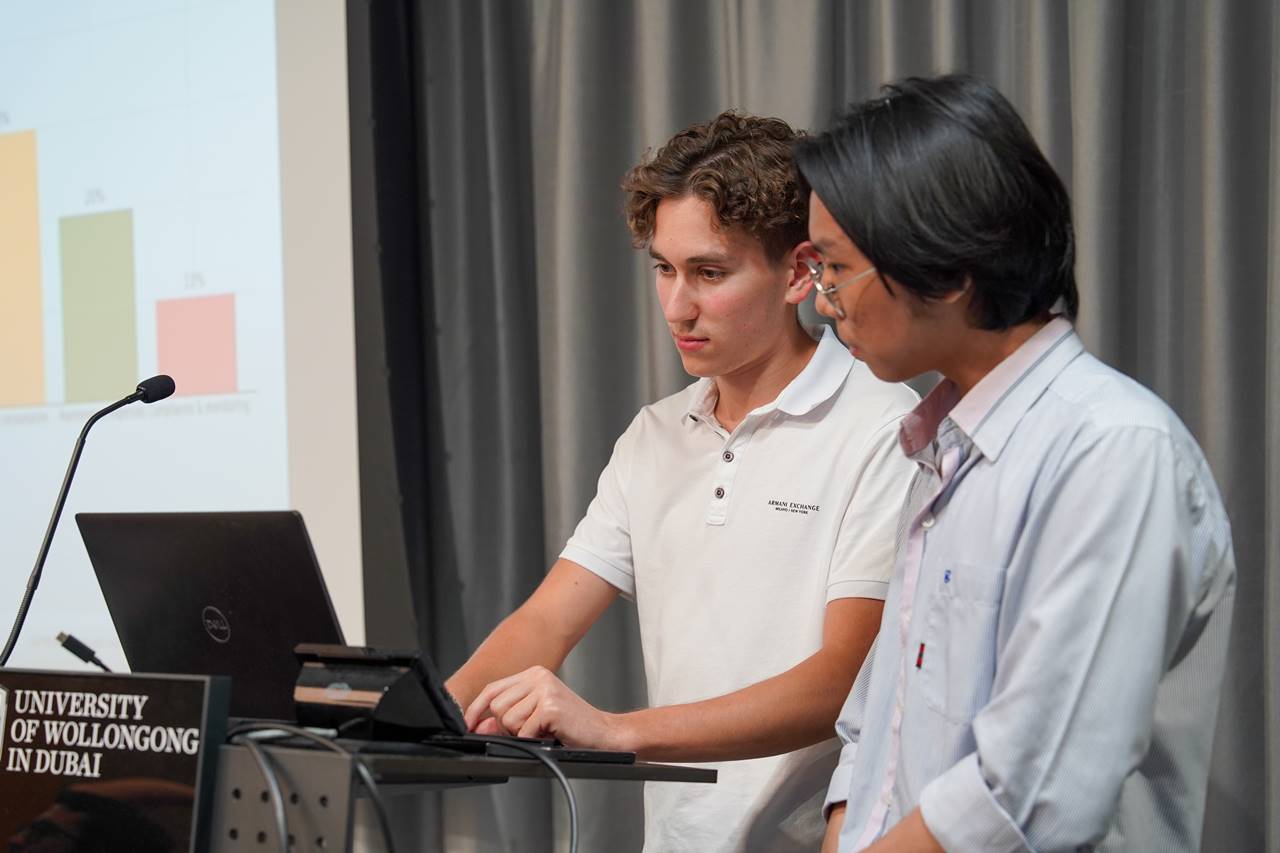The University of Wollongong in Dubai (UOWD) hosted its first-ever Industry Sustainable Finance Conference 2025, marking a significant milestone in industry-academic collaboration and applied learning for students from the School of Business. The event was the culmination of a 12-week project under the university’s Applied Work-Integrated Learning (WIL) initiative, where students tackled real-world sustainability challenges alongside leading global consultancy Buro Happold (BH).
The conference brought together over 100 students from FIN322: Advanced Corporate Finance to present their consultancy work on 25 green initiatives designed to reduce emissions and support sustainable practices in the construction and infrastructure sectors. The event was attended by Buro Happold’s senior team flying in from Saudi Arabia, underscoring the significance of this partnership and the quality of work produced by UOWD students.
An Industry-Driven Collaboration with Buro Happold
The conference is part of a growing collaboration between UOWD and Buro Happold, formalized through a recently signed Memorandum of Understanding (MOU). This partnership strengthens UOWD’s industry engagement by integrating sustainability-focused consultancy projects into the finance curriculum—giving students hands-on experience that mirrors real-world financial modeling and green finance assessments.
Over the winter trimester, Buro Happold provided students with access to advanced industry tools, including the Marginal Abatement Cost Curve (MACC) modelling, and offered ongoing mentorship from their team of consultants. Students were challenged to evaluate the cost-effectiveness of each initiative and identify optimal solutions to meet emission reduction targets—critical skills as industries worldwide shift towards sustainable financing mechanisms like green bonds.
Real-World Green Initiatives Aligned with Global Frameworks
The students’ projects covered five major sustainability themes—Energy, Water, Waste, Mobility, and Materials—each aligned with industry best practices and the PIF Green Finance Framework applied in Saudi Arabia, equivalent to the UAE’s Sustainable Finance Framework. Some of the notable initiatives included:
- Solar plants & PV rooftops for renewable energy
- Efficient water fixtures and low-flush toilets to reduce water consumption
- Demolition and construction waste treatment
- Micromobility and EV charging solutions for greener transport
- Recycled steel and concrete to promote circular material use
Each group showcased the financial viability and environmental impact of their initiatives to the Buro Happold panel, demonstrating their ability to deliver industry-standard consultancy work.
Building Graduate Employability and Industry Readiness
This initiative not only provided students with exposure to one of the world’s leading engineering and consulting firms but also equipped them with a unique skill set highly sought after in the finance sector. As businesses increasingly prioritize sustainable practices to access green financing, UOWD students are prepared to support these transitions—giving them a clear competitive advantage in the job market.
According to Buro Happold, this project served as an informal screening process for their paid internship program. Top-performing students will now be shortlisted for internship opportunities within the company, paving the way for future employment.
“Our collaboration with Buro Happold reflects UOWD’s commitment to embedding real-world learning and sustainability into our finance programs,” said Associate Professor Vikash Ramiah. “This experience has given our students a rare opportunity to apply complex financial modelling to projects that make a tangible difference in achieving net-zero targets.”
The Industry Sustainable Finance Conference reflects UOWD’s ongoing commitment to providing students with impactful, industry-relevant experiences. By engaging with leading global companies and working on real-world challenges, students graduate equipped with the skills and knowledge to thrive in an increasingly competitive job market and contribute meaningfully to a sustainable future.



